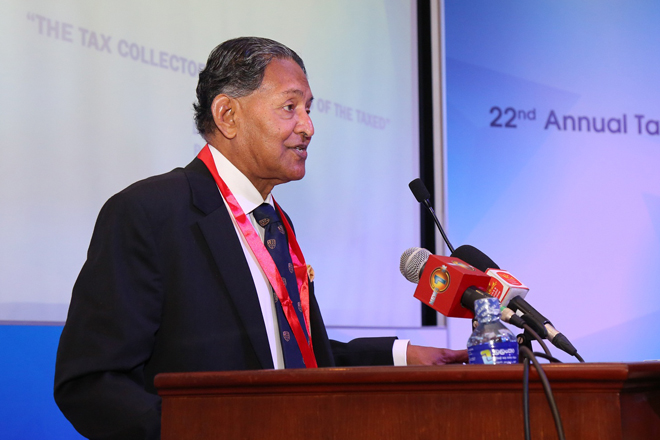Eminent lawyer K Kanag-Isvaran highlights need for Tax Ombudsman

Feb 07, 2019 (LBO) – President’s Counsel Dr. K. Kanag-Isvaran, who is one of the country’s most respected lawyers highlighted the need for a “Tax Ombudsman” in Sri Lanka.
He highlighted this delivering the keynote speech at the 22nd Annual Tax Oration of CA Sri Lanka on “The Tax Collector and The Rights of the Taxed.”
“The need for a “Tax Ombudsman” is now more urgent than ever before due to the changes in the income tax regime and the implementation of RAMIS, to prevent taxpayers running pillar to post,” he said.
Dr. Kanag-Isvaran recalled how the concept of “Tax Ombudsman” was introduced in the Budget of November 2004 by the then Finance Minister and the office was established in 2005 with the appointment of a retired High Court Judge who was the first and only holder of the office.
“The administrative framework and operational guidelines pertaining to the Tax Ombudsman mandated the appointment to be a period of 2 years. No successor was appointed pursuant to the completion of his tenure. Hence that office remains in abeyance.”
Highlighting the benefits of tax Ombudsmen, he disclosed how in Pakistan, Federal Tax Ombudsman Ordinance of 2000 governs the institution and appointment of the Tax Ombudsman under the hand of the President.
“Within 60 days of lodgment of a complaint, the Ombudsman is obliged to communicate his findings & recommendations to the Revenue Division, who in turn is required to report on remedial action taken within the time stipulated,” he said.
Dr. Kanag-Isvaran said that the South African Tax Ombudsman has been constituted by the Tax Administration Act of 2011 while the tax ombudsman office was set up in 2013.
The Tax Ombudsman is appointed by the Finance Minister and is accountable to the Finance Minister. The Canadian Tax Ombudsman appointed by the Governor in Council with a three-year tenure.
“We should not be wanting the phenomenon of the Parisian ‘yellow vests’ with our proposed ‘carbon tax’,” Dr. Kanag-Isvaran said.
In conclusion, he said the taxpayers know the Government may be able to tax them, but they also need to know the use of such taxes.
“Accountability is mandatory. Reasons for and uses of collected taxes should be made available to the public and this, in turn, brings accountability,"
"Hence one cannot deny that "Representation" is one of the most significant rights of the taxpayer.”
